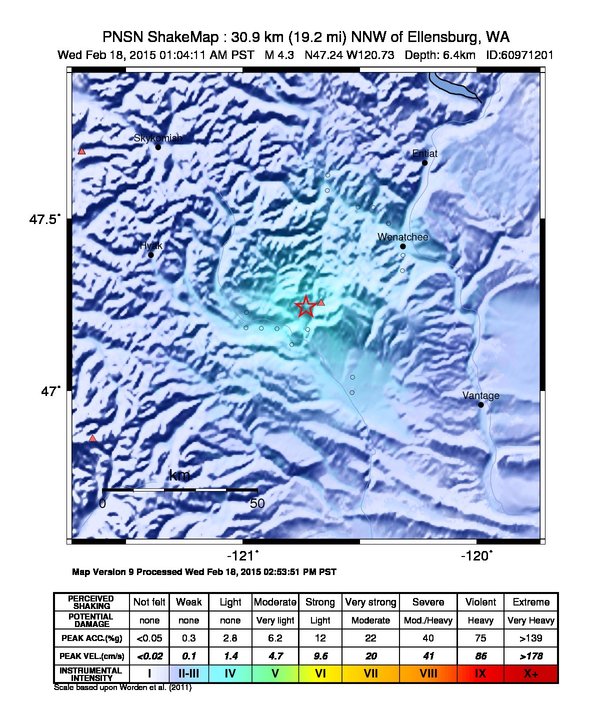Connecting state and local government leaders
But the prototype system was a bit slow to send out an alert.
SEATTLE — On Wednesday morning, a 4.3 magnitude earthquake shook a lightly populated area of Washington state’s Cascade Range. No damage or injuries were reported.
Such a quake isn’t out of the ordinary for the Pacific Northwest. And in many earthquake-prone parts of the United States, a temblor like this wouldn’t attract many headlines—especially in Oklahoma, which is now more seismically active than California and regularly sees quakes of that magnitude.

But this particular quake, near the town of Cle Elum, served as a timely test of the recently rolled out Pacific Northwest Seismic Network, based at the University of Washington. And the earthquake advance warning system didn’t perform as well as expected.
Such seismic detection networks, which are used in Japan and Mexico, can send warnings faster than earthquake waves can travel through the ground, giving those farther away a few seconds or sometimes upwards of a minute to prepare for the shaking to arrive.
In this case, the system, which began testing on Tuesday, was slow by about 18 seconds.
The Associated Press reported that the director of the PNSN at the University of Washington said that there weren’t enough sensors in that part of Washington state to quickly detect the quake and send an alert to the handful of organizations that receive warnings. If the quake had originated in the Puget Sound region, where there are more sensors, the system likely would have reacted and sent an alert more quickly.
Still, the prototype system “worked as anticipated,” according to the PNSN.
This provided a lead time before any significant shaking at the Hanford Nuclear Reservation of about 10 seconds. Although this earthquake was not large enough to be felt in Seattle, the metro area received more than 15 seconds of lead time before the largest seismic waves were observed.
The magnitude estimated for the earthquake was 4.0, which is a bit smaller than the final estimates, which range from 4.2 to 4.4. The warning would have provided sufficient time for automatic actions to mitigate impacts had the shaking been more intense, or for people to take protective action (drop, cover, and hold on). In this case it provided a warning that shaking was not going to be strong, and therefore still valuable to provide peace of mind to warning recipients.
While a few seconds may not seem like much, a seismic detection system can give enough time for trains to stop or slow down, elevators to stop at the next floor and open doors, surgeons to stop delicate operations and companies, local governments and public utilities to shut down or secure vulnerable infrastructure.
The PNSN was designed with a much bigger seismic threat in mind: the next Cascadia megathrust earthquake. That offshore quake, which could register upwards of an 8.0 or 9.0 magnitude, is forecasted to cause catastrophic damage across the region, especially along the Oregon and Washington state coastlines, which would be hit by a destructive tsunami.
But the epicenter will likely be far enough away from major population centers like Seattle, which could have enough time to take quick action to limit the quake’s impact and save lives.
A similar prototype system in California is also being developed, expanded and tested. Under the system, Los Angeles could have up to a minute warning when the so-called Big One strikes the southern end of the infamous San Andreas Fault.
The California system has successfully sent alerts in recent quakes. During the 6.0 magnitude Napa County earthquake last August, for instance, local agencies in the San Francisco area received 10-second warning before the shaking started.
(Photo by Max Herman / Shutterstock.com)




